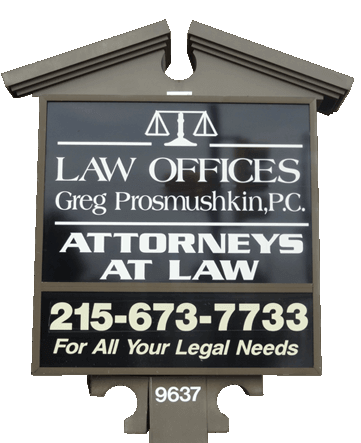Philadelphia Car Accident Lawyer
Car accidents can often lead to serious injuries, such as traumatic brain injuries, spinal cord injuries, and whiplash. These injuries can have a profound impact on your life, requiring ongoing medical treatment and preventing you from being able to work.
When you engage Philadelphia Car Accident Lawyers who understands that every car accident case is unique. They will listen to your case, thoroughly investigate it, explore possibilities for recovery, and negotiate with the insurance companies.
Every driver fears getting involved in a car crash. Even if the incident may not appear severe, the injuries and damage can be devastating. If you are unfortunate enough to be involved in a motor vehicle accident in Philadelphia, you may require legal help. If you are involved in a hit-and-run accident, it may involve many complications. Entrust your legal work to our experienced personal injury law firm.
What Are The Common Causes Of Philadelphia Car Accidents?
Here are some of the factors that can cause a car collision:- Intoxicated Driving;
- Distracted Driving;
- Irresponsibly changing lanes;
- Failure to use lights when necessary;
- The loss of control of a vehicle;
- Exhausted or fatigued driving;
- Winter weather conditions;
- Driving under the influence of drugs or alcohol (DUI);
- Driving distracted;
- Speeding;
- Tailgating;
- Driving aggressively or unpredictably;
- Failing to obey traffic signals;
- Road Rage
What types of injuries do car accidents cause?
 Some of the most typical injuries that a personal injury lawyer assists clients with are:
Some of the most typical injuries that a personal injury lawyer assists clients with are:
- Bone fractures or dislocations;
- Abrasions or puncture wounds that are severe;
- Brain trauma;
- Open wounds on the skull;
- Damage to the spinal cord;
- Severe injuries to the back and neck;
- Shock;
- Internal organ dysfunction;
- Internal bruising;
- Severe scarring and deformity;
- Emotional and psychological suffering.
Different types of car accidents that a Philadelphia Car Accident Lawyer Represents
There are several different types of auto accidents that you may be involved in. Here are some of the common types of wrecks and collisions for which you may receive compensation.- Head-on collisions: These crashes are considered to cause enormous damage and injuries. Negligence plays an important role in head-on collisions.
- Rear-end collisions: These types of crashes cause whiplash and other catastrophic injuries. Rear-end crashes are some of the most common collisions.
- Side-impact crashes: These types of collisions occur at intersections and are quite common. The injuries can be severe.
- High-speed accidents: These collisions cause the accident victim devastating injuries, thereby leading to hefty medical bills. High-speed accidents are more dangerous than other crashes.
- Rollover crashes: In these accidents, the vehicle tips or flips on the side or the roof of the vehicle. Generally, vehicles having a high center of gravity suffer rollover accidents.
Who is liable for car collisions in Philadelphia?
It is important to determine the parties whose actions caused you injuries and made you suffer damages. There may be single or multiple parties who are responsible for the crash. Some of the potential parties at fault are:- Companies responsible for loading a commercial vehicle;
- Manufacturers who manufactured defective auto parts;
- Government entities if they failed to maintain safe road conditions;
- Bars serving drinks to intoxicated drivers.
What To Do After A Car Accident In Philadelphia
Many injured accident victims are perplexed about what actions they should take following a vehicle accident. Here are some steps you may take right away with the help of a Philadelphia car accident lawyer following a car accident in Philadelphia.- Make a copy of your medical records.
- Keep a recovery record with specific details.
- Call the law enforcement authorities.
- Call your insurance company
- Maintain all receipts and medical bills.
- Attend all treatment and doctor's appointments.
- Do not provide insurance with a recorded statement.
- Do not rush to have the car repaired because it contains crucial evidence.
- Collect any additional proof that may be useful in your claim.
- Never, ever accept blame.
Pennsylvania Auto Accident Statistics
According to the Pennsylvania Department of Transportation (PennDOT), in 2020 the number of people who were injured in traffic fatalities was the lowest in the past 93 years, at nearly 1129. If we analyze the percentages then:- The total reported crashes were lower by 16.6% as compared to 2019.
- Reported fatalities were lower by 6.6% as compared to 2019.
- Total injuries were lower by 19.7% as compared to 2019.
- 2021: 133
- 2020: 166
- 2019: 91
- 2018: 103
- 2017: 94
Full Tort vs Limited Tort
While you are choosing insurance policies in Pennsylvania, you have two fundamental options: Full Tort or Limited Tort. In a limited tort policy, you have to manage the expenses for your pain and suffering yourself. You need to show evidence that you have sustained serious injuries that have resulted in impairment or permanent disfigurement.
In selected limited tort, diagnostic testing is carried out to confirm that you are seriously injured. You can also switch from limited tort to full tort. This is the case when the driver who has caused the accident is outside of Pennsylvania. In such a case, you can choose the full tort option.
Under the full tort option, you have full coverage to recover damages for pain and suffering claims. In either option, you will get a recovery of your economic losses including medical expenses, lost wages, and others.
Uninsured or underinsured motorist coverage
In some accident cases, the driver may not possess insurance or has inadequate liability coverage. Therefore, you should carry both uninsured and underinsured motorist coverage. UM claims can also be filed when the responsible driver is undiscovered such as in hit and run cases. Under an uninsured or underinsured motorist claim, your insurance company will pay for all losses caused by the uninsured driver.
Damages you can recover from a vehicle collision in Philadelphia
Damages refer to losses suffered by the injured victim. Compensation can be given for these losses in the form of settlement. To recover damages, you need to prove fault and determine that you suffered losses due to the other party’s negligence. The following types of injuries are available after an auto crash:
Medical bills: This includes compensation for both past and future medical expenses. Some of the damages covered are rehab expenses, surgery, therapy, doctor's visits, and others
Lost wages: A mishap could force you to lose out on precious business time. This can directly influence your ability to earn a living and meet your basic needs. You should be compensated for lost wages if you receive a settlement or judgment.
Loss of future earnings: You may be unable to work if you suffer injuries resulting in temporary disability or long-term damage. If you were disabled due to an automobile accident in Philadelphia, you could seek compensation for lost future wages.
Property damage: Car accidents can result in considerable property damage. This includes damage to the vehicle and other personal stuff in the car, such as smartphones, laptop computers, and car seats. If your collision resulted in a total loss, you might be able to recover the entire value of your car before the accident.
Pain and suffering: This is one example of non-economic damage. This category includes losses that are harder to quantify, such as pain and grief, as well as mental torment.
The level of compensation you can receive is sometimes restricted. A Philadelphia car accident lawyer will evaluate your case and help you determine the amount of compensation you may be entitled to after filing a claim.
How to proceed after a car accident?
Auto accidents are common and can occur at any time. Therefore, you must be prepared in advance. You must keep important documents, including vehicle registration numbers, insurance details, contact information, and health insurance information. Furthermore, you must also keep your phone charged whenever you travel in order to make emergency calls. You must also keep pictures of your current car condition. Your emergency safety kit should include a first-aid kit, fire extinguisher, jumper cables, tire puncture sealant, and camera. However, as cameras may not always be available you may wish to capture evidence by using your phone camera.Confused about the claim process? Here is the checklist
A car insurance claim will begin after a car crash. The collision may be caused by another vehicle, or immovable object, or may be caused due to driver negligence. However, you must follow specific steps after a crash.- To claim insurance you must first inform the insurance provider of the accident. You must inform them about the magnitude of the injuries along with the severity of the accident.
- Inform the police about the incident and collect a copy of the police report.
- Evidence will play a fundamental role in the claim process. Therefore, capture as many pictures of the vehicles, of the surrounding area, and of your injuries as you can.
- All required documents must be submitted to the insurance company. The documents may include a car registration number, police report copy, insurance details, driver’s license, and others.
Where do Philadelphia Car Accidents Occur?
According to the Philadelphia Inquirer, some of the streets where accidents are most common are:- Street Road;
- I-95;
- Delaware Expressway;
- Schuylkill Expressway;
- Broad Street;
- Easton Road;
- Roosevelt Boulevard;
- Old York Road.

